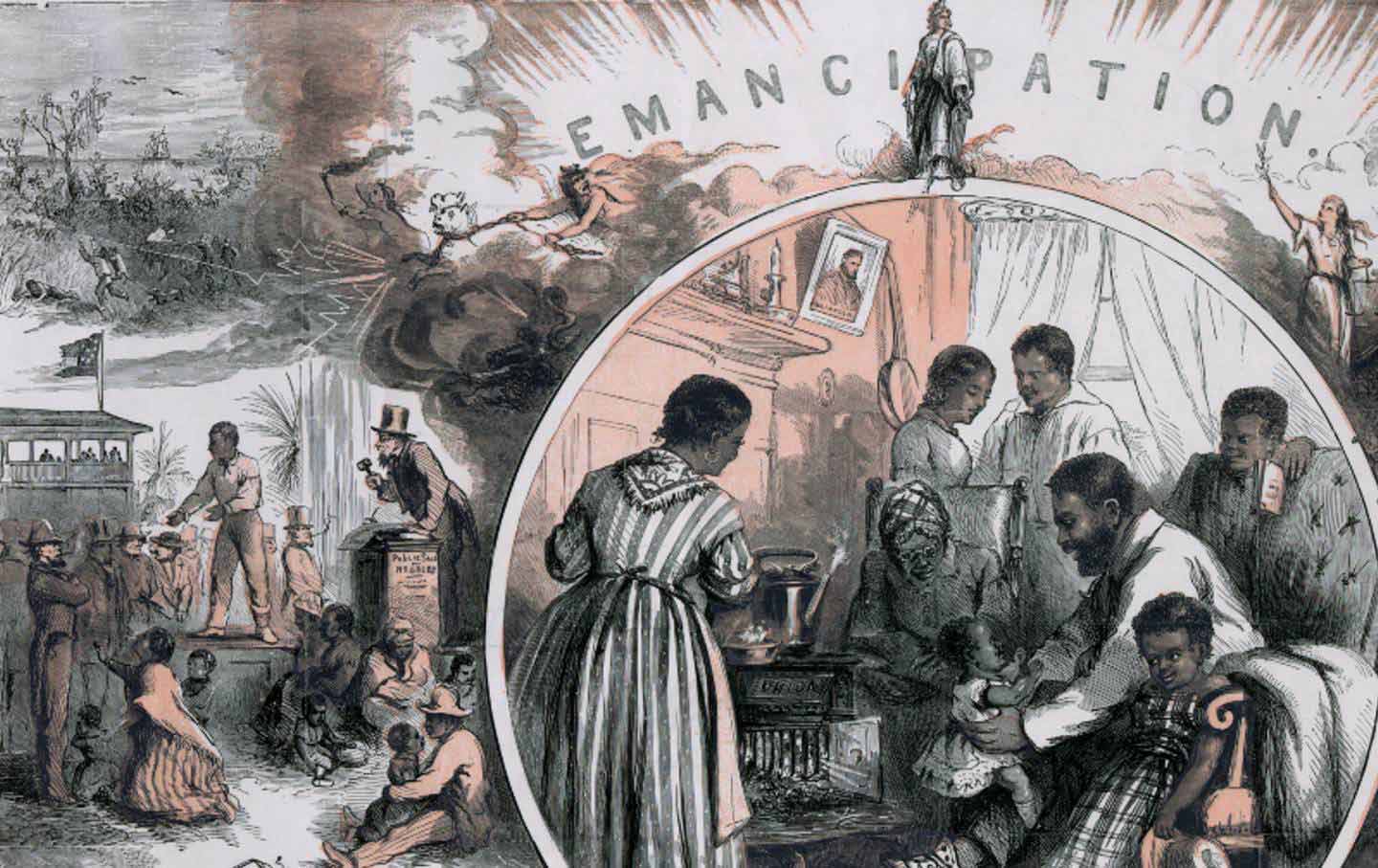My Breastfeeding Journey Would Not Have Been Possible Without My Abortions
Because my abortions allowed me to become a parent when the timing was right, I was equipped to overcome the barriers to breastfeeding in a way that many new working parents are not.

I remember my son’s first latch—the moment when we first connected and I felt the bliss of new motherhood. Holding eight pounds and nine ounces of sweetness on my chest, still connected by the umbilical cord, he latched on within minutes of being born. But what came instinctively to him felt mysterious to me, and our breastfeeding journey was not without its challenges. Now, after two years of breastfeeding, I realize how fortunate we are. We had the opportunity to breastfeed, and I attribute that privilege, in part, to my abortions.
Having access to abortions when I needed them played a significant role in my ability to breastfeed today. During my first abortion, I was unemployed, uninsured, and burdened with debt. If I had chosen to continue with that pregnancy, I would have lacked the resources and flexibility needed for successful breastfeeding. The same was true during my second abortion, where I faced a toxic workplace and no paid leave. While children born from these pregnancies wouldn’t have been doomed solely due to lack of breastfeeding, the key point is that I would have been stripped of the ability to commit to that process.
Barriers preventing parents from choosing or continuing breastfeeding are abundant in the United States, and they are among the factors many of us take into consideration when we are unintentionally or unwillingly pregnant. Paid parental leave is nonexistent, truly lactation-friendly workspaces are scarce, and breastfeeding demands a time commitment of around 1,800 hours just in the first year. While breastfeeding advocates secured a huge win in 2022 with the passage of the PUMP Act, a law that closed a national coverage gap and made many important changes to strengthen the right to break times and a private space for lactation, employers still struggle to adequately support lactating employees, and the federal government and vast majority of states do not guarantee any break time for lactation after one year.
As the first person in my family to breastfeed, I faced the journey with little prior knowledge. My son had lip and tongue ties, making breastfeeding difficult from the start and leading to inadequate weight gain during early infancy. Thanks to the support of a lactation consultant, research, and the luxury of time, I was able to overcome these obstacles. Throughout the first year, new issues arose including an overactive let down, which is when the milk comes out too quickly; latch problems that left me physically wounded; and the complete inability to produce milk via breast pump, meaning that in order to continue breastfeeding I would have to exclusively nurse. Thanks to my flexible, remote workplace, I did not have to choose between working or continuing to breastfeed.
During World Breastfeeding Week, August 1–7, it’s crucial to raise awareness and take action to support breastfeeding parents. Current recommendations from the World Health Organization, American Academy of Pediatrics, and UNICEF advocate for six months of exclusive breastfeeding and continuing breastfeeding up to two years and beyond if desired by the parent. However, the reality in the United States is a different picture. Although more than 80 percent of infants start out receiving some breast milk, only 55.8 percent receive breast milk at 6 months, with a mere 24.9 percent being exclusively breastfed during this period, and just 35.9 percent of infants continue breastfeeding at 12 months. While data after 12 months is limited, it’s safe to assume that numbers drop significantly after the child’s first birthday. Many new parents choose not to breastfeed for a myriad of reasons, and that decision is their right. What these statistics demonstrate, however, is that for those who would choose to breastfeed, systemic barriers have made it more difficult for them to follow the recommended guidance.
The disparities in breastfeeding rates are not solely a matter of personal choice or individual circumstances; they are deeply rooted in systemic issues that disproportionately affect marginalized communities. Birth justice must be central to the conversation surrounding breastfeeding. Historically, communities of color have faced numerous barriers to accessing quality health care, including a lack of prenatal and postnatal care workers in their communities. Creating a more equitable and supportive environment for all breastfeeding parents and babies can ensure that every child has an equal opportunity to thrive from the start.
Abortion access provides us the ability to choose if, when, and how we start our families. Because my abortions allowed me to become a parent when the timing was right, I was equipped to overcome the barriers to breastfeeding in a way that many new working parents are not. While I fully believe that exemplary parenting is possible regardless of whether a pregnancy was intended, the reality is that life becomes more manageable when parents can shape their families according to their own terms and timelines.
I am pro-abortion because I love babies, and because I understand how challenging parenting can be in today’s world. It’s all interconnected. Breastfeeding is a privilege when it should be a birthright for those who choose to do it. I am proud of our breastfeeding journey, and my hope is that all new parents have the opportunity to experience this joy, should they choose it. Let us strive for a society where breastfeeding support is equitable, where reproductive choices are respected, and where every parent can shape their family with dignity and autonomy.
We cannot back down
We now confront a second Trump presidency.
There’s not a moment to lose. We must harness our fears, our grief, and yes, our anger, to resist the dangerous policies Donald Trump will unleash on our country. We rededicate ourselves to our role as journalists and writers of principle and conscience.
Today, we also steel ourselves for the fight ahead. It will demand a fearless spirit, an informed mind, wise analysis, and humane resistance. We face the enactment of Project 2025, a far-right supreme court, political authoritarianism, increasing inequality and record homelessness, a looming climate crisis, and conflicts abroad. The Nation will expose and propose, nurture investigative reporting, and stand together as a community to keep hope and possibility alive. The Nation’s work will continue—as it has in good and not-so-good times—to develop alternative ideas and visions, to deepen our mission of truth-telling and deep reporting, and to further solidarity in a nation divided.
Armed with a remarkable 160 years of bold, independent journalism, our mandate today remains the same as when abolitionists first founded The Nation—to uphold the principles of democracy and freedom, serve as a beacon through the darkest days of resistance, and to envision and struggle for a brighter future.
The day is dark, the forces arrayed are tenacious, but as the late Nation editorial board member Toni Morrison wrote “No! This is precisely the time when artists go to work. There is no time for despair, no place for self-pity, no need for silence, no room for fear. We speak, we write, we do language. That is how civilizations heal.”
I urge you to stand with The Nation and donate today.
Onwards,
Katrina vanden Heuvel
Editorial Director and Publisher, The Nation








